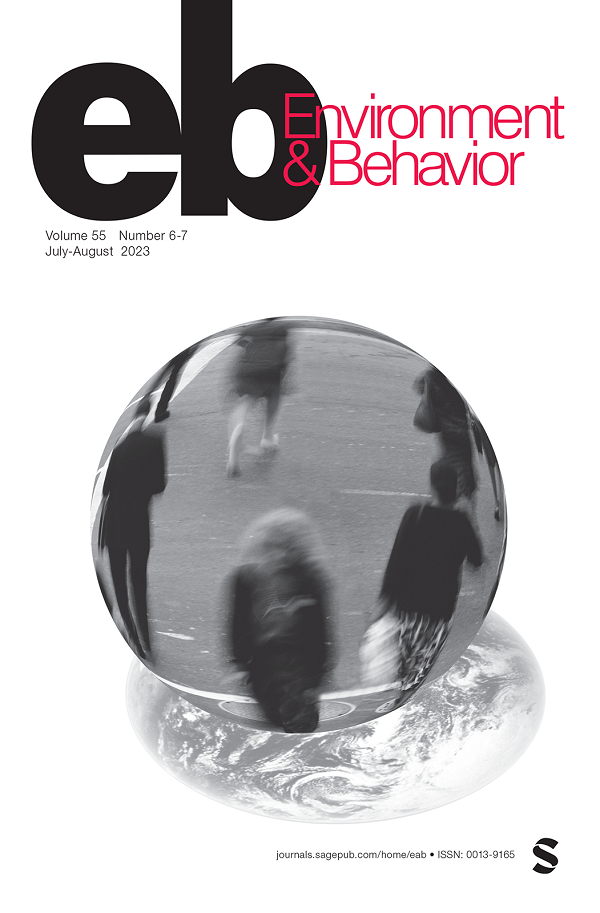Spatial Factors Related to Occupants’ Behavioral Beliefs About Window and Blind Use in Multifamily Residential Buildings
IF 4.6
2区 心理学
Q1 ENVIRONMENTAL STUDIES
引用次数: 1
Abstract
Occupant behavior is one of the factors that impact the buildings’ energy consumption. Occupants interact with building systems to adjust their indoor environmental conditions to meet their comfort levels. Occupants’ behavior to control those multiple conditions have been studied in isolation. Previous research highlighted the impact that contextual factors, such as interior design, have on occupants’ energy-related behaviors. This study focused on psychological, contextual, and environmental reasons leading to energy-related occupants’ behavior. It investigated the impact of spatial factors: orientation, floor level, space type, and furniture layout on occupants’ behavioral beliefs about operating windows and adjusting blinds. Results revealed a significant relationship between the spatial factors and occupants’ behavioral beliefs about operating windows and adjusting blinds. It is recommended to consider occupants’ behavioral beliefs related to the spatial factors in the preliminary stages of the design process to contribute to efficient space planning and thus enhance the building’s energy performance.多户住宅居住者对窗户和盲目使用行为信念的空间因素
居住者的行为是影响建筑能耗的因素之一。居住者与建筑系统相互作用,调整室内环境条件,以满足他们的舒适度。居住者控制这些多重条件的行为被孤立地研究。之前的研究强调了环境因素(如室内设计)对居住者能源相关行为的影响。本研究的重点是导致能源相关居住者行为的心理、情境和环境原因。研究了朝向、楼层、空间类型和家具布局等空间因素对居住者开窗和调节百叶窗行为信念的影响。结果表明,空间因素与居民开窗和调节百叶窗的行为信念之间存在显著的关系。建议在设计过程的初步阶段考虑居住者与空间因素相关的行为信念,以有助于有效的空间规划,从而提高建筑的能源性能。
本文章由计算机程序翻译,如有差异,请以英文原文为准。
求助全文
约1分钟内获得全文
求助全文
来源期刊

Environment and Behavior
Multiple-
CiteScore
13.30
自引率
1.80%
发文量
13
期刊介绍:
Environment & Behavior is an interdisciplinary journal designed to report rigorous experimental and theoretical work focusing on the influence of the physical environment on human behavior at the individual, group, and institutional levels.
 求助内容:
求助内容: 应助结果提醒方式:
应助结果提醒方式:


